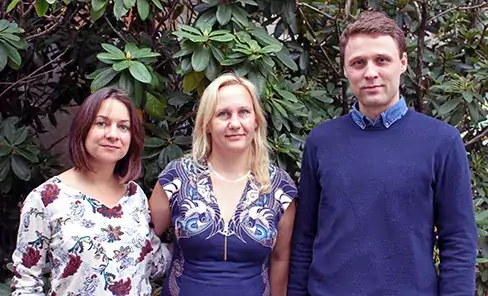Research focus
With improving life-expectancy and quality of medical care, there is increasing need for high-quality studies in the aging populations. Our research group focuses on patients diagnosed with dementia by performing large-scale registry-based studies focusing on the quality of dementia care in Sweden, as well as identifying modifiable factors (pharmacological treatments, socioeconomic determinants) that could benefit or harm dementia patients, especially frail and with existing co-morbidities.
The primary endpoint of our research is to improve how patients with dementia and multimorbidity are treated.
The group’s work is primarily focused on the data from the Swedish Dementia Registry (SveDem), the largest dementia registry in the world. The possibility to merge SveDem data with other registries and databases provides a unique opportunity to gain high-quality patient data. The research topics studied include multimorbidity research (e.g. dementia and diabetes mellitus, cardiovascular diseases) psychological aspects (e.g. antipsychotics in clinical care, behavioral and psychological symptoms of dementia) prevention strategies (blood biochemistry testing) and pharmaco-epidemiology (factors affecting mortality and cognitive decline in dementia patients).
Collaborations
- Apolipoprotein-Related Mortality Risk (AMORIS) Cohort – Niklas Hammar, Göran Walldius, Mats Talbäck
- BPSD Register – Katarina Nägga
- Cardiovascular comorbidities– Polish Academy of Sciences, Maria Styczynska, Maria Barcikowska, Tomasz Gabryelewicz
- Heart failure – Lars Lund
- Comorbidities and driving fitness – Desmond O’ Neil
Research Projects
Diabetes as a major co-morbidity in patients diagnosed with dementia
Diabetes mellitus is an important risk factor for dementia, but the research on the prognostic factors for patients diagnosed with both diabetes and dementia is scarce. This project focuses on clinical characteristics of patients with diabetes and dementia, and the many pharmacological treatments these patients receive. The aim is to assess whether these patients are treated effectively, whether certain medications should or should not be used.
Blood biochemistry changes and dementia
This project utilizes data from the AMORIS cohort, which collects longitudinal data on approximately 800,000 subjects with blood biochemistry sampling performed in mid-life, and correlates it to the risk of dementia in some of the patients. Long-term biochemistry trajectories as well as creating risk-scores are the primary endpoints of the project. The project focuses on the glucose metabolism, lipid metabolism and inflammatory biochemistry.
Factors associated with treatment and mortality of dementia patients with behavioral and psychological symptoms of dementia (BPSD)
Approximately 80% of dementia patients will suffer from at least one symptom during the course of disease and this contributes to the progression of dementia. Studies have also raised concerns about antipsychotic drugs (APD), which are mainly prescribed to treat BPSD.
The aim of the project is to describe the role of APD in mortality among dementia patients.
Research support
With special thanks to the following donors for the support they provide or earlier provided to our research:
- Swedish Research Council (VR)
- Stockholm County Council (ALF project)
- Alzheimerfonden
- Stiftelsen för Gamla Tjänarinnor
- Horizon 2020 (European Union)

